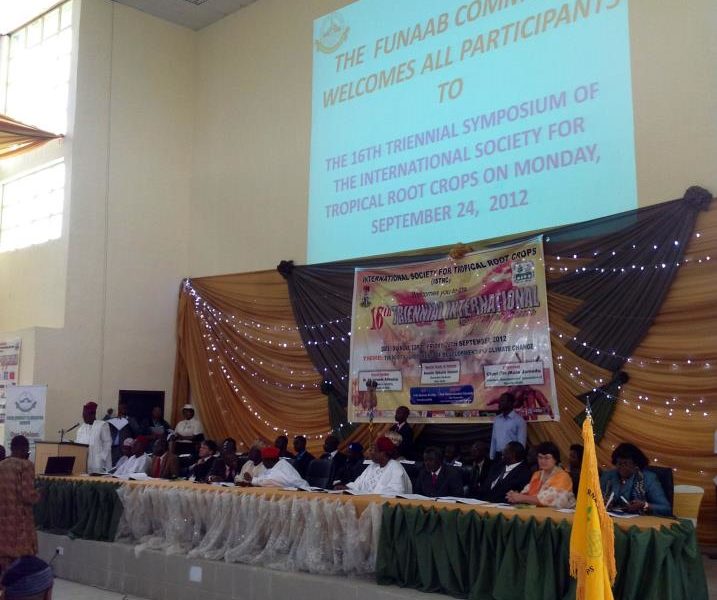The triennial ISTRC symposium in Abeokuta offers a unique platform for interaction among scientists from different backgrounds across the world who are working on tropical root and tuber crops to share experiences, foster collaboration and develop strategies to contribute to sustainable development.
Abeokuta, Nigeria (25 September, 2012) – Roots, tubers and bananas (RTB) have the potential to improve livelihoods for 200 million poor farmers who rely on these nutritious, resilient, and versatile crops, according to scientists gathered today at the International Society for Tropical Root Crops (ISTRC) summit.
“The potential for these untapped crops is vast,” said Graham Thiele, head of the CGIAR Research Program on Roots, Tubers and Bananas. “These underappreciated, yet nutritious, crops are ideal for developing countries, since they are grown cheaply and locally, which means they are also relatively insulated from global price fluctuations.”
The triennial ISTRC symposium in Abeokuta offers a unique platform for interaction among scientists from different backgrounds across the world who are working on tropical root and tuber crops –such as sweet potatoes, cassava, potatoes, Andean roots and tubers, yams and aroids– to share experiences, foster collaboration and develop strategies to contribute to sustainable development.
Today, the CGIAR Research Program on Roots, Tubers and Bananas is embarking upon a priority-setting process that involves multi-stakeholder participation to ensure that its research is grounded in the realities of the end-users –-i.e. 200 million poor farmers.
“Two-way communication is fundamental. There is always a risk that researchers aren’t aware of the circumstances and needs of the end-users. The end result is detached research. Therefore, good communication means having a single, transparent system and making sure that research is moving in the right direction,” added Thiele.
Roots, tubers and bananas are among the 10 most consumed food crops in the world. They provide cheap sources of energy and key nutrients and contribute up to 60 percent of daily calorie intakes. RTBs offer a great potential for higher yields and increased system productivity, inasmuch as these diverse crops can grow in marginal areas, in rotation, or as inter-cropped with grains or other crops. This means more food, more efficient systems, and more diversity, in order to reduce risks of food shortages and nutritional shortfalls.
Important scientific commonalities link these crops. They are genetically complex and clonally propagated (or grown from plant cuttings). They also share many similarities –and challenges– in crop management, seed systems, and breeding strategies. The Research Program is currently gathering inputs across three continents to ensure the delivery of relevant research in order to produce positive impacts.
“At present, roots, tubers, and bananas are not well-positioned among decision-makers, who do not have a full appreciation of their true importance,” notes Thiele. “But as the word gets out, I am sure these crops will undoubtedly gain ground.”
RTB, the CGIAR Research Program on Roots, Tubers and Bananas, is a joint initiative among four of its Centers to address RTB challenges globally and efficiently. It is led by the International Potato Center (CIP) in collaboration with Bioversity International, the International Center for Tropical Agriculture (CIAT), and the International Institute of Tropical Agriculture (IITA). To enhance its research, reach, and impacts, the program also works directly with extensive networks of partners and stakeholders.
Key program areas:
- Conservation/access to genetic resources
- Breeding more robust, high-yielding varieties
- Managing pests and diseases
- Making low-cost, high-quality planting material available to farmers
- Developing tools for more productive, ecologically robust cropping systems
- Improving post-harvest technologies, value chains, and market opportunities
- Partnerships for better impacts

